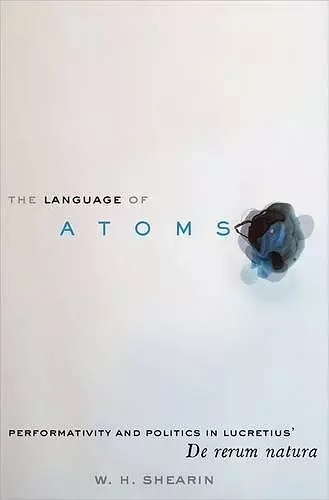The Language of Atoms
Performativity and Politics in Lucretius' De rerum natura
Format:Hardback
Publisher:Oxford University Press Inc
Published:15th Jan '15
Currently unavailable, and unfortunately no date known when it will be back

The Language of Atoms argues that ancient Epicurean writing on language offers a theory of performative language. Such a theory describes how languages acts, providing psychic therapy or creating new verbal meanings, rather than passively describing the nature of the universe. This observation allows us new insight into how Lucretius, our primary surviving Epicurean author, uses language in his great poem, De rerum natura (On the Nature of Things). The book begins with a double contention: on the one hand, while scholarship on Lucretius has looked to connect Lucretius' text to its larger cultural and historical context, it has never turned to speech act theory in this quest. This omission is striking at least in so far as speech act theory was developed precisely as a way of locating language (including texts) within a theory of action. The book studies Lucretius' work in the light of performative language, looking at promising, acts of naming, and the larger political implications of these linguistic acts. The Language of Atoms locates itself at the intersection of both older scholarly work on Epicureanism and recent developments on the reception history, and will thus offer scholars across the humanities a challenging new perspective on Lucretius' work.
One of the most exciting fields currently in Classics is the study of ancient philosophical texts not simply as systems of thought but as dynamic historical and discursive phenomena that exploit the social practices and linguistic resources of the culture in which they are produced. In his rigorous exploration of the performative dimension of the De rerum natura, Shearin takes the study of the language of Lucretius to a new level of critical sophistication, and offers a fresh and compelling understanding of the poem's claims to a practical, therapeutic function. * Duncan Kennedy, University of Bristol *
ISBN: 9780190202422
Dimensions: 163mm x 234mm x 25mm
Weight: 442g
232 pages